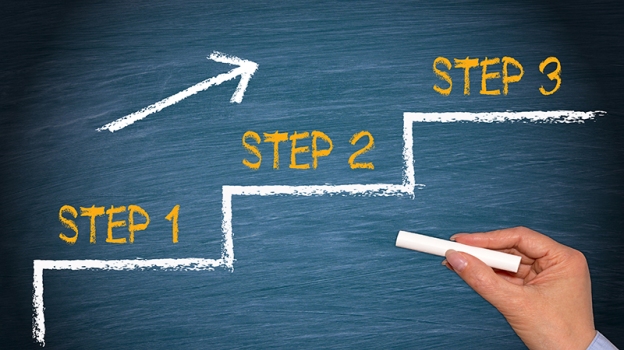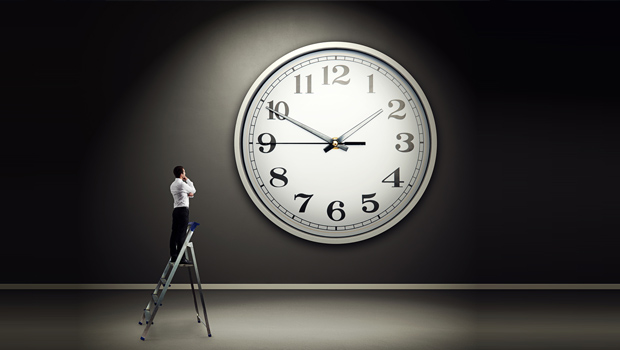For some of us, overthinking things is easy. Getting caught up in our thoughts and living in our heads comes naturally. Besides, the longer I spend thinking about things, the more time I am able to dedicate to not taking action, not doing anything, not stepping into new/different/uncharted territory, not making a change.
I can, with very little effort, go around and around on something in my head for so long that what I’m pondering on could have been dealt with already. It could be behind me. I could be stepping outside my comfort zone and working toward a better life, but instead, I’m living in my head.
Part of the reason we live in our heads, part of the reason we refuse to take action, has to do with being comfortable. We’re comfortable in our chaos and confusion and poor choices. They are familiar. They might hurt us and they might hurt people around us, but it’s easier to continue living this miserable, comfortable life than it is to venture into the great unknown. There’s a reason we fear the unknown – it’s unknown.
Who in their right mind wants to journey into a place where nothing is familiar? Where life is uncertain? It’s a crapshoot. There are risks. But there are also rewards. We’ll never figure out what those rewards are, though, if we don’t take the risk of doing things differently.
And don’t tell me you don’t fear the unknown. Yes, I hear you. Some of you don’t fear the unfamiliar, per se. You’re perfectly fine taking a new job or moving to a new city or leaving your friends and support group behind, but the one thing that goes with you wherever you are is YOU.
Change your surroundings. Change your job. Change your people. Buy a new car or a new outfit or an entirely new wardrobe. Change every circumstance of your life if you want, but real transformation is never going to occur if you don’t change yourself. And that’s where fear of the unknown kicks into overdrive.
I don’t want to get better because I don’t know what I’ll be like without drugs. I don’t know how to go to work everyday without my liquid courage. I don’t know how to enter that boardroom and give my presentation without relieving the anxiety and the pressure before I step into the room. I don’t know how to watch the big game without knowing who I’m supposed to be rooting for based on they payout I might receive.
This crutch that I’ve lived with for so long helps me be who I am. It defines me (because I let it define me). I rely on that fix just to get through the day. How am I ever going to get through the day without it? How am I ever going to know who I am without it? How am I going to hang out with my “friends” if we’re not busy chasing the next hit? (You’re not! Sorry, not sorry). What do I do when I don’t recognize myself anymore?
These are valid questions. They have answers. Many of the answers will come only when we face life without our disease riding shotgun (or, more accurately, when we make it stop driving the car). Some of these answers will be found in the experience, strength, and hope of others who’ve gone before us. They’ve been giving us these answers in meetings, if we’ve been attending them. Chances are we just haven’t been hearing them because we weren’t yet ready to hear them.
One of the other big pushes for not addressing our own crap is that it’s so much easier to tackle the flaws which are SO apparent in others.
Jesus said it like this: “And why worry about a speck in your friend’s eye when you have a long in your own?…Hypocrite! First get rid of the log in your own eye; then you will see well enough to deal with the speck in your friend’s eye.” – Matthew 7:3, 5
The Big Book says that, “we are there to sweep off our side of the street, realizing that nothing worth while can be accomplished until we do so, never trying to tell [another] what he should do.” – 77-78
What it ultimately boils down to is actually quite simple. There’s nothing we desire more than to be in control. Fear of the unknown is about control. Our inability to cope is about control. All of our addictive tendencies and our inability to give them up can be linked back to control. We want control, or at the very least, perceived control. But when we have the power, when we are in control, our lives go horribly wrong.
That’s when we need to turn to the steps and turn to God. I know it sounds crazy that the solution for getting control of our lives rests in giving control over to a higher power, but look at where you are now. You’ve given control to your addiction – to your disease – to something outside of yourself which isn’t capable of making you happy. Perhaps it’s time to give control to somebody who can make you happy.
And so we turn to the first three steps. If we fail to understand and achieve the first three steps, we will ultimately fail to master any of the subsequent steps. These steps are about coming to a place where we find peace with God through the disciplines of submission and conversion.
When we live into these steps we have the opportunity to move from powerlessness and brokenness into honesty. From self-reliance, doubt, and shame to dependence on a power greater than ourselves and hope for the future. From playing God in our lives and the lives of others to letting God be in charge of our lives and trusting that God is more than capable of making our lives better if we’ll let that happen.
These steps are the basis of a program of change, of transformation, of surrender. We work these steps not only to discover who God is and what role God can and should play in our lives but also to figure out who we are. And then, as we progress through the steps and work to live a new life, we reflect on these three steps in our morning meditation and whenever hardships arise. These three steps act as a simple reminder of the order life should take.
I can’t.
God can.
I think I’ll let him.
That’s it. In their simplest form, those are the first three steps. Those are words to live by.
Whenever life is overwhelming. Whenever you’re faced with more than you can handle. Whenever you don’t know what to do. These things will all happen – more frequently than any of us would desire. When they do, rather than turning back to unhealthy coping mechanisms and diseases which keep us wrapped up in a warped sense of reality, turn to that simple mantra.
It won’t fix everything. It’s not magical. But it is a good reminder that my own best thinking has been the bane of my existence, and it’s high time that I recognize my inability to effectively control and manage my life.
When life seems unmanageable or confusing, many of us unknowingly complicate matters even further by trying to anticipate everything that could go wrong, so that we will be prepared to respond. [Keep it simple] reminds us that we can’t control every possible outcome to ever situation and that trying to do so makes our lives more difficult and more stressful than they already are…We can relax and try to be more gentle with ourselves, trusting that by putting one foot in front of the other, we will eventually get where we are going. – How Al-Anon Works, 66
Never worry about anything. But in every situation let God know what you need in prayers and requests while giving thanks. Then God’s peace, which goes beyond anything we can imagine, will guard your thoughts and emotions through Christ Jesus. – Philippians 4:6
I can’t.
God can.
I think I’ll let him.
– Alex Walker


